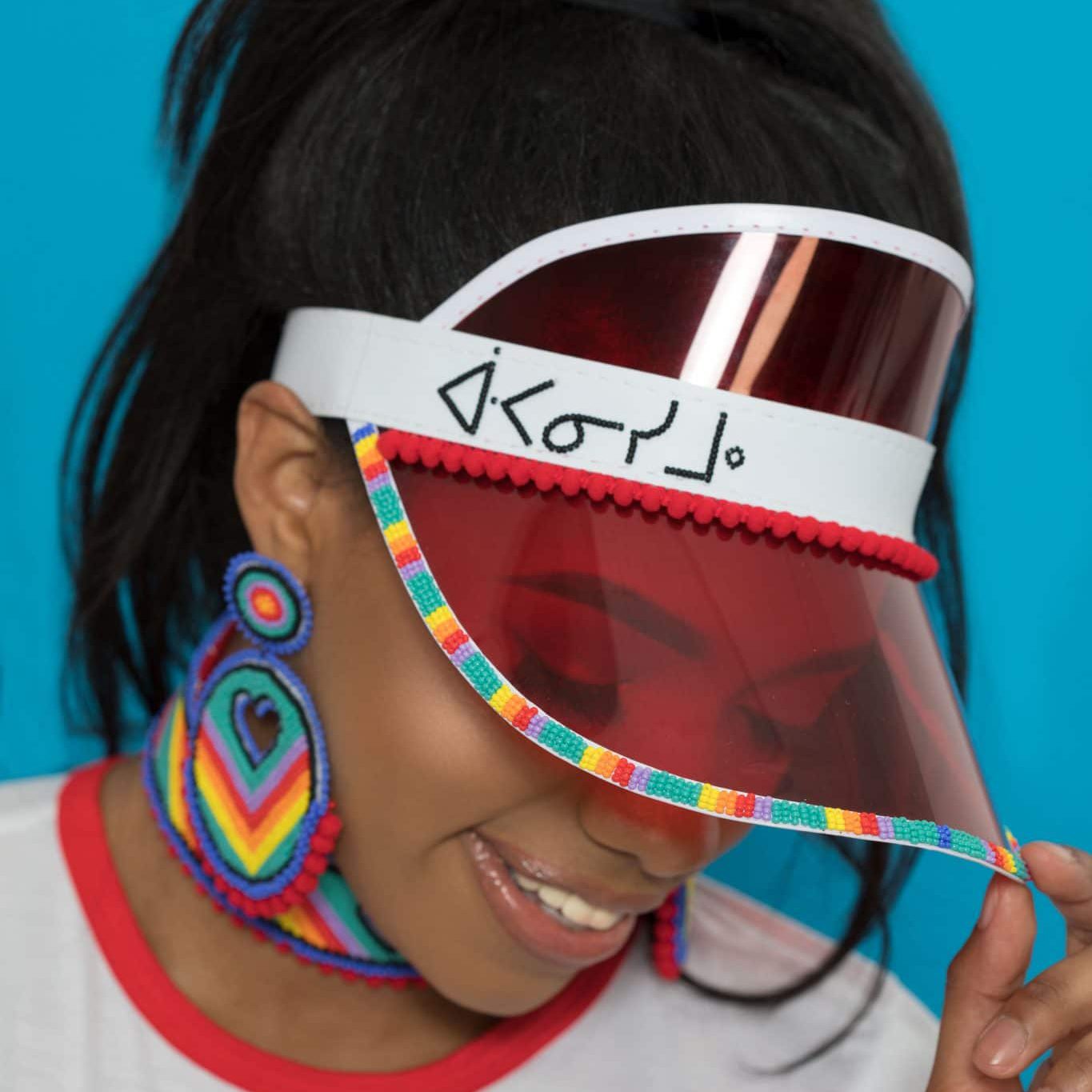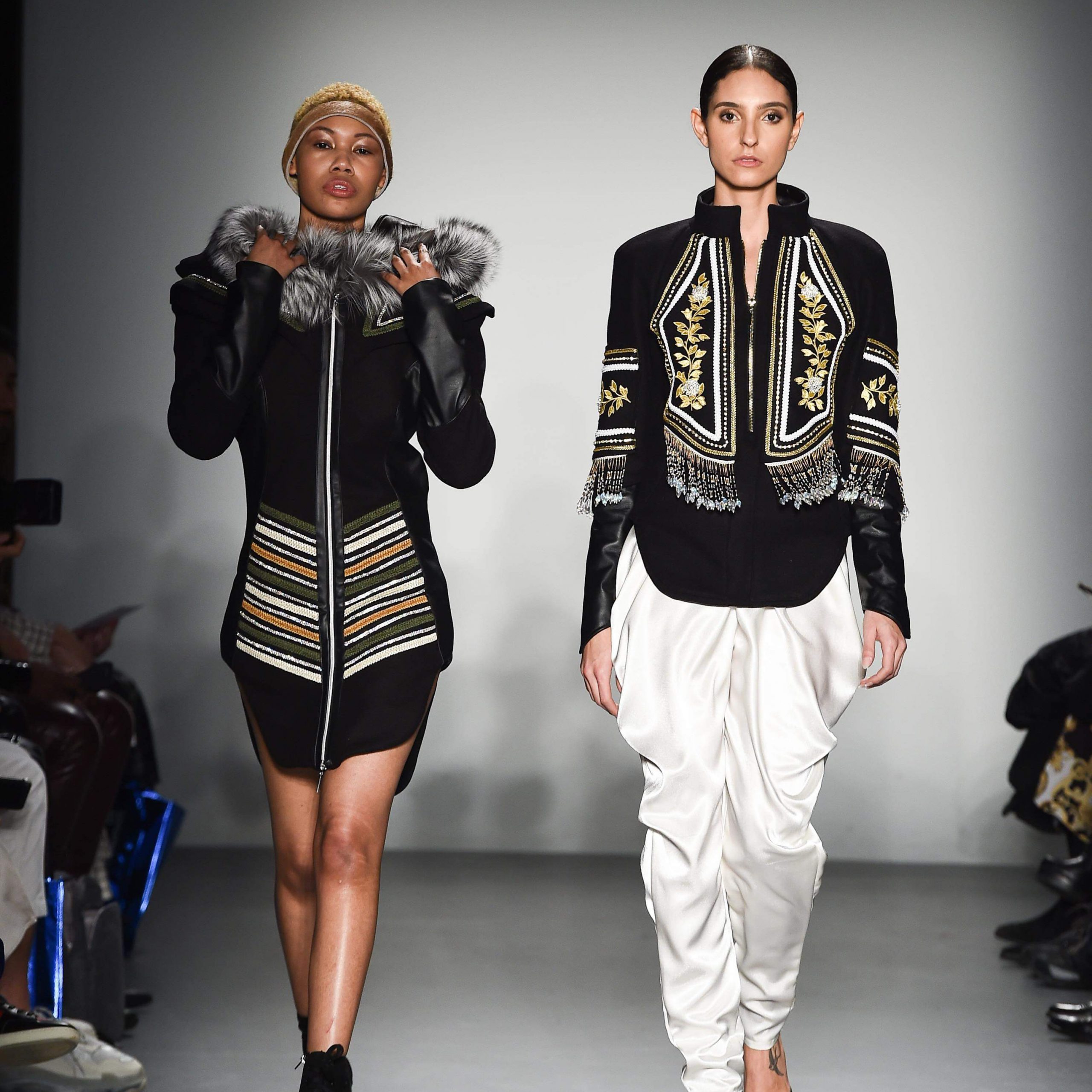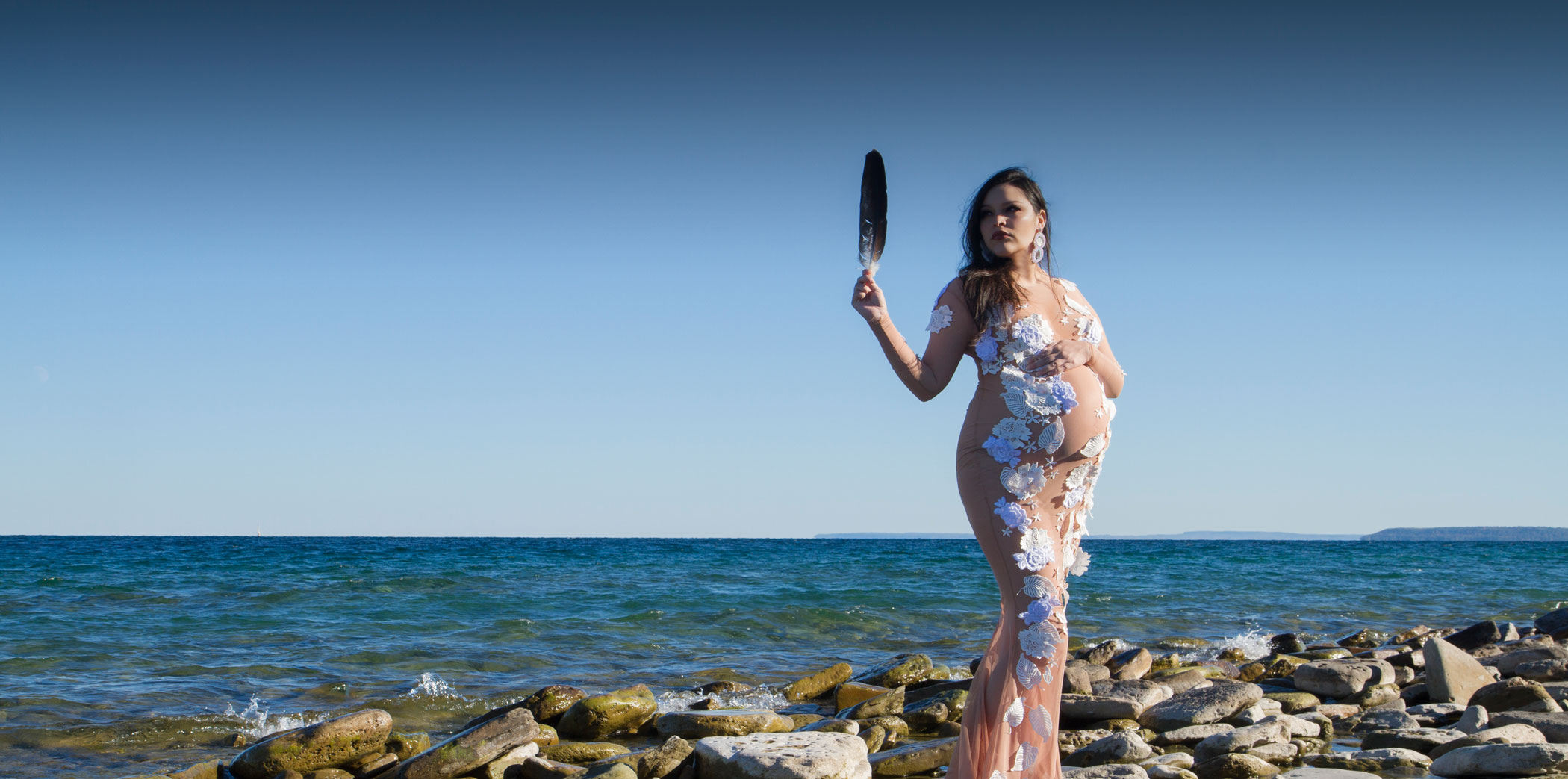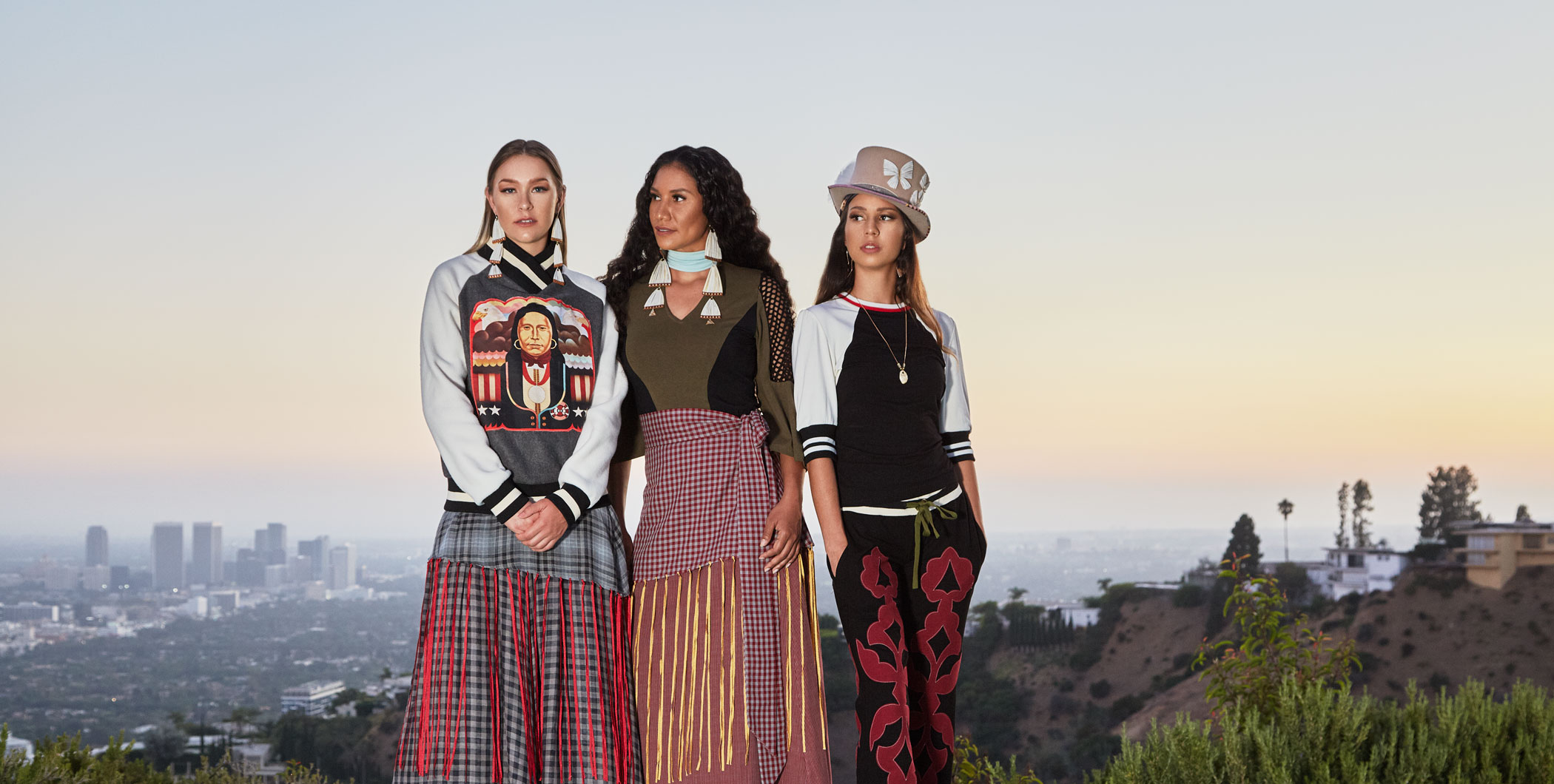Presenting progressive, distinct and exceptional fashion, textiles and craft by Indigenous artists at the intersection of art, fashion and culture.

Mission
IFA presents Indigenous-made fashion, textiles and craft. IFA is committed to exploring the deep connections between mainstream fashion, Indigenous art and traditional practice through presentation for broad audiences and industries. With amplified visibility of and led by Indigenous women, IFA is bold, inclusive and accessible. We challenge perceptions of and celebrate Indigenous people and our culture with integrity, innovation and excellence.
Mandate
Indigenous Fashion Arts is Indigenous-led and committed to becoming a leader in the dissemination and exportation of Indigenous-made works for the advancement and empowerment of Indigenous artists and designers, connecting them and their work to Canadian and international audiences, festivals, buyers, retailers, curators and institutes.


Artistic Policy
IFA – Indigenous Fashion Arts presents Indigenous-made & designed fashion, crafts and textiles in runways, curated exhibitions, artist talks, panels, lectures, hands-on workshops, and a marketplace for all audiences.
IFA programs 60% or more Indigenous women artists and their works in fashion, textiles and crafts. All self-identified Indigenous artists and exhibitors from across Canada and around the world are invited to apply to exhibit in the runway and marketplace. Emerging, mid-career and established artists and designers are equally considered for programming.
IFA accepts applications of fashion, crafts or textiles of any style. Submitting an application does not guarantee inclusion in Indigenous Fashion Week Toronto.
IFA uses the words “artist” and “designer” interchangeably. All artists exhibited in runway, art exhibition, workshops and/or panels are paid artist fees by IFA based on CARFAC minimum fee schedule. Selected works for the runway program are selected based on artistic merit, innovative vision, technicality and skill, impacts for the artist and audiences and overall cohesion to IFA vision.
Selected works for the marketplace are based on artistic merit, technicality and skill, impact for the artist, retail readiness, potential interest by fashion industry, audience demand and opportunity to challenge audiences and overall cohesion to IFA vision.
In certain programs, such as a “spotlight” program, an artist may be solicited or curated for a program. Solicited and curated artists are selected by the Artistic Director and/or a guest curator and/or advisor(s). These selections are in line with a specific curatorial vision.
Selection Process
IFA is committed to managing a transparent selection process and presenting a high level of excellence in our programming, maintaining artistic integrity that mutually benefits programmed artists, IFA and our audiences. IFA prioritizes new fashion, crafts and textiles works. Priority may be given to works that have not yet been presented nationally in Canada, provincially in Ontario, or locally in Toronto. Due to high submission volumes and the limited runway and/or marketplace spots, the selection committee may choose to prioritize works by an Indigenous designer that has not yet had the opportunity of a public presentation or, for runway, focuses on artistic expression and beyond commercial fashion.
Runway and Marketplace selections are made by a selection committee through an organized juried process. The selection committee is comprised of Indigenous and non-Indigenous administrators and/or artists working in arts, fashion and/or culture, including IFA employees. The selection committee is formed and led by the Executive & Creative Director.
Decisions are made by consensus, with considerable thought and discussion during deliberations. If a designer is not selected, it is not a comment on individual achievements, relationships, or the artistic value of the work. In addition to eligibility terms and artistic policies, the selection process must also consider available runway/marketplace slots, scheduling, thematic arcs, and representing the diversity of artistic and cultural perspectives from Indigenous nations in Canada and around the world.
The process of accepting and declining works is necessary, but emotional, for everyone involved and we understand how difficult it can be to receive such news. While discussions of the selection committee in deliberations are confidential, we greatly appreciate feedback on our processes and in return are pleased to suggest alternative runway or marketplace strategies for your work beyond the official IFA program.
We pay close attention to potential conflicts of interest (direct and indirect) to ensure a transparent jury process. When there is any question of conflict, a discussion and objective decision is made for whether a selection committee member can judge an application to guarantee fair judging of all applicants. However, given our small but growing community of Indigenous designers, we believe we cannot disadvantage Indigenous artists who give their time to IFA by excluding them from artistic presentation opportunities, which is determined without their input or influence. Sometimes these applicants are eligible to submit their work to IFA; however, they do not influence programming decisions. In cases where their work is being considered, they are not present for programming discussions and decisions about their work, nor do they have input into the scheduling of it.
A direct conflict of interest occurs when a juror or their immediate family member (spouse or partner, parent, child, sibling, or member of their immediate household) will benefit financially from the success of an application. Indirect conflicts of interest occur when some factor makes it difficult for a juror to evaluate an application objectively and will be made apparent on a case by case basis.
To maintain public confidence in our jury process, we have outlined our practices and policies that ensure all applications are considered fairly even if an applicant is not successful. In considering conflict of interest, we identify direct, indirect, and perceived conflicts, and we manage them individually.

Our Name
IFA is an arts and culture festival. We maintain a “fashion” and “arts” connection in our name for important reasons. The intention of colonization was to exploit, disempower and erase Indigenous people and culture, including the commodification, devaluing and theft of Indigenous-made fashion, crafts and textiles. Indigenous fashion, crafts and textiles have been excluded from a patriarchal western definition of “art” within this system as well. The exclusion and misrepresentation of Indigenous culture and people, and specifically of women, has had damaging impacts on Indigenous communities. Therefore, the name “Fashion Arts” is deeply meaningful and we will:
Create and maintain space for Indigenous-led representation in the mainstream fashion industry. Aim to establish Indigenous “fashion” as “art.”
Maintain accessibility to our community of makers who have established themselves “in fashion.”
Strive for artistic integrity beyond euro-western artistic definitions.
Politics
IFA is for everyone! Fashion, textiles and craft are accessible art forms. Regardless of class, gender, culture, race, geographic location, education level, artistic understanding or professional industry, every person undeniably interacts with these forms every single day. Fundamentally, clothing is survival that connects us to each other and the Land.
IFA challenges mainstream perceptions of Indigenous peoples and our cultures. Indigenous stereotypes, exploitation and commodification are harmful and high-profile: appropriation by international retailers, ignorant street-style fashion at massive music festivals, racist national sports team mascots, and violent news headlines & online comments sections. By creating space for Indigenous artists we contribute to dismantling these persistent and harmful perceptions of Indigenous peoples and our culture, shifting the focus to Indigenous peoples and our work from across Canada and around the world.
Our priority is to program at least 60% Indigenous women. We amplify our voices and visibility and put our women front and centre. At IFA, the presence and leadership of Indigenous women is essential. We are here. We are most Indigenous makers in Canada. We advocate each other and we honour our Matriarchs who have come before us and their work.
IFA (Indigenous Fashion Arts) is operated by a group of primarily Indigenous women. IFA gives artistic and professional agency to Indigenous makers, presenting their fashion, textiles and craft in showcases, exhibitions, workshops, lectures and a marketplace outside of the mainstream fashion and craft industries. IFA is Indigenous-led and committed to becoming a leader in the dissemination and exportation of Indigenous-made works for the advancement, empowerment and wellbeing of Indigenous artists, with a focus on amplifying the visibility and voices of Indigenous women, connecting them and their works to Canadian and international audiences, festivals, buyers, curators and academic institutes.

Code of Conduct
Indigenous Fashion Arts is a non-profit arts organization supporting Indigenous people and communities working in fashion, craft and textiles. Indigenous Fashion Arts celebrates global Indigenous expression in fashion and the arts and its ground-breaking in Indigenous knowledge, ways of life and storytelling. Led by Indigenous women, Indigenous Fashion Arts connects audiences to artistic and cultural expression that celebrates and advances Indigenous artists and designers.
Indigenous Fashion Arts reserves the right to rescind the credentials of those who engage in harassment, discrimination, or abusive or threatening behavior, and to prohibit access to venues and set, without warning.
Indigenous Fashion Arts is committed to providing a friendly, safe, respectful and welcoming environment for all, regardless of age, ancestry, colour, race, citizenship, ethnic origin, place of origin, creed, disability, family status, marital status (including single status), gender identity, gender expression, sex (including pregnancy and breastfeeding), and sexual orientation.
The Indigenous Fashion Arts Code of Conduct will ensure that all festival collaborators have a positive experiences at our events and on set and all individuals are treated with dignity and respect, including:
- Guests
- Artists
- Staff
- Volunteers
- Partners
- Sponsors
- Media
By entering our space, you accept our General Policies and agree to abide by our Code of Conduct.
Indigenous Fashion Arts will not tolerate harassment and violence against or by any person at any Indigenous Fashion Arts events.
Harassment is defined as:
- engaging in a course of vexatious comment or conduct against an individual that is known or ought reasonably to be known to be unwelcome; or
- sexual harassment.
Some examples of harassment include:
- any verbal or electronic comments related to any or all protected grounds as defined by the Ontario Human Rights Code;
- deliberate intimidation, stalking or following;
- photography or recording of an individual that is non-consensual and unwelcome;
- sustained disruption of sessions, talks or other events;
- inappropriate physical contact; and
- any touching or attention that is unwelcome or ought reasonably to be known to be unwelcome
Sexual Harassment is defined as:
- engaging in a course of vexatious comment or conduct against an individual because of sex, sexual orientation, gender identity or gender expression, where the course of comment or conduct is known or ought reasonably to be known to be unwelcome; or
- making a sexual solicitation or advance where the person making the solicitation or advance is in a position to confer, grant or deny a benefit or advancement to the individual and the person knows or ought reasonably to know that the solicitation or advance is unwelcome.
Some examples of sexual harassment include:
- asking for sex in exchange for a benefit or a favour;
- repeatedly asking for dates, and not taking “no” for an answer;
- demanding hugs;
- making unnecessary physical contact, including unwanted touching;
- using rude or insulting language or making comments toward other individuals;
- calling people gender-specific derogatory names;
- making sex-related comments about a person’s physical characteristics or actions;
- saying or doing something because you think a person does not conform to gender-role stereotypes;
- posting or sharing pornography, sexual pictures or cartoons, sexually explicit graffiti, or other sexual images (including online);
- making sexual jokes; or
- bragging about sexual prowess.
Violence means, but is not limited to:
- The exercise of physical force by a person against an individual that causes or could cause physical injury to the individual;
- An attempt to exercise physical force against an individual that causes or could cause physical injury to the individual;
- A statement or behavior that is reasonable for an individual to interpret as a threat to exercise physical force against an individual that causes or could cause physical injury to the individual;
- Physical acts (e.g., hitting, shoving, pushing, kicking, sexual assault); or
- Any threat, behaviour or action which is interpreted to carry the potential to harm or endanger the safety of others, result in an act of aggression, or destroy or damage property.
In addition, Indigenous Fashion Arts will not tolerate the use of derogatory or discriminatory language, gestures or actions, including but not limited to any form of racial, religious, sexist or ethnic slurs, or any other targeted comments which are intended or ought reasonably to be known to cause personal offense to another Indigenous Fashion Arts participant either in-person or online.
Consequences of Violations of the Code of Conduct
Violations of this Code of Conduct will not be tolerated whether by a cast, crew, press, guests, staff, volunteers, vendors, media, sponsors and partners. Anyone asked to stop unacceptable behavior is expected to comply immediately.
If a participant engages in unacceptable behavior, Indigenous Fashion Arts may, at its sole discretion, expel the participant from the event, set and/or future events, without warning, and, if appropriate, solicit the involvement of local law enforcement.
Persons finding themselves in a situation where they feel their safety is at risk or who become aware of a cast, crew or an attendee acting in violation of this Code of Conduct should immediately report the attendee to the Producer, Executive & Artistic Director or a Board of Director of Indigenous Fashion Arts.
Please contact candace@indigenousfashionarts.com if you believe that you’ve observed or experienced a violation of this Code of Conduct. Indigenous Fashion Arts will take all reasonable and practical measures to investigate and address all instances of harassment, sexual harassment, and violence.
All violations of the law should be reported to local law enforcement. For emergencies, immediately dial 9-1-1.



